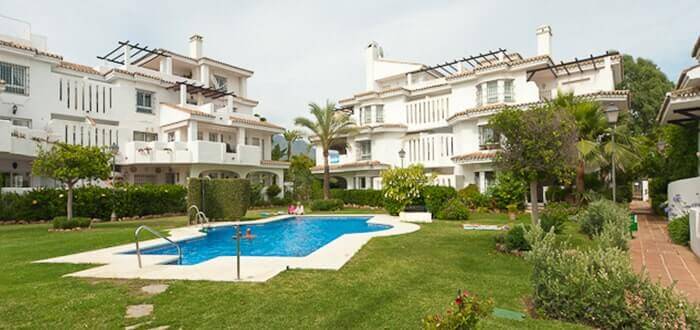The Law in Spain: Paying Property and Income Taxes
If you are a property owner in Spain, you could be liable to pay several separate taxes each year, despite the tax advantages available for owners who have resident status...
Property Owner’s Imputed Income Tax
This tax doesn’t apply to a resident owner’s principal home, but will apply to any second home you have. If you are a non-resident, the property is not classed as your main home and thus will be taxed on a yearly basis. This is understandable reasoning: either become a resident in Spain and avoid this tax or the authorities will always deem you to be a non-resident and, therefore, the owner of another principal property elsewhere.
This rate of tax is payable at 19 per cent of 1.1 per cent of the catastral value of the property for European Union citizens and at 24 per cent of 1.1 per cent of the catastral value of the property for other foreign citizens.
Here’s the good news: there are Spanish wealth tax exemptions for main homes and for other net assets up to €700,000 (although this amount is lower in some regions).
Looking for a home in Spain?
Property for sale on the Costa del Sol

Wealth Tax
Spanish residents and non-resident property owners are liable for wealth tax, but the threshold is extremely high. It is called “patrimonio” tax in Spain, which means the same: you are taxed on assets, not income, and it is based on the real sale value declared in the title deeds, not the lower “valor catastral
It was abolished in 2008 but reintroduced for the tax year running 2012-13, albeit affecting residents and non-residents differently.
- As a resident… you are required to declare worldwide assets.
- As a non-resident… you only have to declare property and assets in Spain.
Non-Residential Rental Tax
Whether resident or not, you can legally rent out your property in Spain with few problems. However, any rental income must be declared to the tax authorities, and this tax must be paid quarterly.
The tax for non-residents from the European Union is 19 per cent of the net rental benefit, which means you can deduct some expenses from the gross income. Other non-residents (from outside the European Union) need to pay 24 per cent on the gross income and are not able to discount any expenses.
As a resident, it is advisable to include rental income with general income when making your annual Spanish income tax declaration.
Administratively, there is an obligation to obtain the “touristic licence” if the rental is going to be for less than two months, but for tax purposes it is considered in the same way – independently of whether the rental is short or long-term.
If you register your property as a tourist letting operation – or rather when, because this is now obligatory –you can charge the maintenance costs of your property as a business expense, and thus offset it against tax – only if you are a European Union citizen.
Annual Real Estate Tax (IBI)
Remember the “valor catastral ”? Well, this valuation determines how much IBI – or municipal tax – you must pay. It is pegged to inflation, and rates can vary from town to town.
If you are a non-resident in Spain, the best thing to do is to have this tax paid annually by standing order.
Your bank will have the appropriate forms that authorise such a transaction, and the local council will be satisfyingly mute on the matter if you set up payment in this manner, because taxes will be paid on time – and it also acts as an official identification of your property and ownership.
Fiscal Representative
The administration authorities only require a non-resident to appoint a fiscal representative in certain cases – and not when the only activity is ownership of a property. However, a fiscal representative provides guarantees to Spanish tax authorities that there is a reliable, permanent contact residing in the country to represent the non-resident taxpayer. It is normal for a non-resident’s tax consultant or lawyer to be their fiscal representative.
PLEASE NOTE: Every effort was made to check the accuracy of the information contained within our “Legal Advice” articles at the time of writing, but it may have been superseded over time. VIVA cannot accept responsibility for any errors or omissions, nor for the authenticity of any claims or statements made by third parties. We therefore strongly recommend that readers of these articles make their own thorough checks before entering into any kind of transaction. Prices and figures were correct at the time of publication but may now vary due to circumstances beyond our control. The views and opinions of editorial contributors do not necessarily reflect those of VIVA.
Letzte beliebte Neuheiten
Möchten Sie die Immobilie finden, die perfekt für Sie ist.
 de
de





 Vlaams-Nederlands
Vlaams-Nederlands